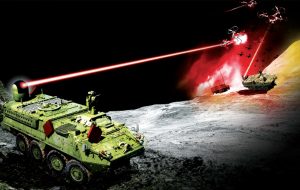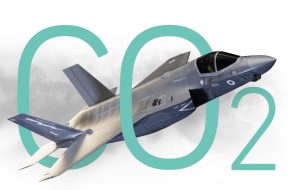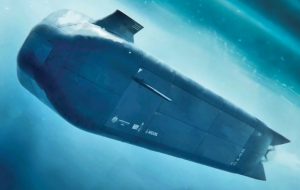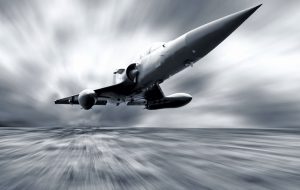Despite the decentralization and the loss of state monopoly on warfare in the fourth generation of modern warfare, advanced countries’ armies possess unique access to the latest military technologies, including emerging quantum technologies. Quantum technology is an emerging field in physics and engineering that relies on quantum mechanical properties. Although it has not yet reached maturity, it carries significant implications for the future of warfare by enhancing efficiency and precision in military sectors through its applications in sensing, encryption, communications, and more. We have been hearing about quantum warfare, which utilizes quantum technologies in military applications to affect intelligence, security, and defence capabilities in all areas of warfare. It heralds new military strategies, approaches, and scenarios. What distinguishes quantum technology is its dual-use nature, meaning it can be applied in both civilian and military sectors.
The first quantum revolution brought us familiar technologies that we use in our daily lives, such as nuclear energy, semiconductors, lasers, magnetic resonance imaging, modern communication technologies, digital cameras, and other imaging devices.
In the military domain, the first quantum technology resulted in nuclear weapons and energy. Currently, the term quantum technology mainly refers to the emerging technology predominantly associated with the second quantum revolution, which manipulates and controls individual quantum systems (such as atoms, ions, electrons, photons, particles, or various quasi-particles), allowing access to the quantum limit, the maximum limit of measurement accuracy in quantum scales.
Quantum technology does not primarily introduce new weapons or stand-alone military systems, but it significantly enhances measurement capabilities, sensing, precision, computational power, and the efficiency of current and future military technologies. Military applications of quantum technology encompass various fields of land, air, space, electronic, cyber, and underwater warfare, as well as intelligence, surveillance, target acquisition, and reconnaissance.
The Debate of the 20th Century
Niels Bohr said, “Those who are not shocked when they first come across quantum theory cannot possibly have understood it.”
Richard Feynman stated, “If you think you understand quantum mechanics, you don’t understand quantum mechanics.” Werner Heisenberg declared, “The universe is not only stranger than we think, but stranger than we can think.”
These three quotes, attributed to the most famous three physicists in quantum physics, indicate a wide consensus that attempting to understand quantum physics is not a joke but rather a perplexing challenge for the mind and a source of profound contemplation. Although we may not be able to fully comprehend it, quantum mechanics-based technologies already exist all around us.
One of the fundamental aspects of quantum mechanics is that, on the subatomic scale, the world is “probabilistic” rather than “deterministic.” This concept of probability sparked a famous international debate between Albert Einstein and Niels Bohr at the Solvay Conference of 1927 in Brussels.
This conference gathered the most prominent 29 physicists of the time (17 of whom later won Nobel Prizes) to discuss the newly formulated quantum theory, known as the “Debate of the 20th Century.”
Niels Bohr defended the new quantum mechanics theory as formulated by Werner Heisenberg, while Albert Einstein sought to support the deterministic model of cause and effect. At present, the scientific community agrees that Niels Bohr won the debate.
This means that our world does not have a fixed narrative based on cause and effect but is, in fact, subject to probability. In other words, you can know everything that can be known in the universe, but you cannot know what will happen in the future.
Fierce Competition
Due to their potential to bring enormous new capabilities for both civilian and military purposes, quantum technologies have gained significant interest from industries, businesses, and governments in recent years.
Moreover, major technology companies such as IBM, Amazon, Google, and Microsoft are investing hundreds of millions of dollars in quantum research and development in their race for “quantum supremacy.”
They aim to harness quantum computing, which promises immense power in terms of data processing, size, speed, and security, with the ultimate goal of building a quantum internet.
Quantum computers will have a tremendous impact on simulating complex systems, drug development, finance, logistics services, machine learning, and decryption. Governments have also recognized the transformative potential and geopolitical value of quantum technology applications and have established their own research programs, with the United States, the European Union, and China each investing more than a billion dollars. In 2016, China launched its first quantum science satellite, enabling intercontinental communication. The Commonwealth Scientific and Industrial Research Organisation (CSIRO) projected that the emerging quantum technology sector in Australia will generate over 4 billion Australian dollars in annual revenue and support 16,000 jobs by 2040. As mentioned earlier, the first generation of quantum technology already exists everywhere around us, in semiconductors, precision processors, high-speed switches in computers, and communication infrastructure. The discovery of the key characteristics of quantum particles underlying quantum technologies, such as “superposition” and “entanglement,” has led to an improved understanding of the fundamental quantum principles and has stimulated the development of second-generation quantum technologies: quantum sensing, quantum communications, and quantum computing.
In other words, quantum technology is an emerging field that relies on exploiting physical phenomena at a subatomic level.
The next generation of quantum technology is already making its way into device clusters and will soon be everywhere. For instance, in the case of quantum sensing, the ability to measure minute differences in temperature, acceleration, gravity, and time is expected to greatly improve, which is the goal of quantum research.
Unique characteristics
The use of quantum technologies provides an effect characterized by the following features:
1 Security: Quantum technologies should provide more protection against future quantum attacks (such as post-quantum encryption).
2 Efficiency: Quantum technologies should enhance the efficiency of current technology and methods (such as quantum improvements, quantum machine learning, or artificial intelligence).
3 Precision: Quantum technologies will increase the accuracy of current measurement technology (such as quantum magnetic measurement, quantum gravity measurement, quantum self-repairing navigation, and timing).
4 New capabilities: Quantum technologies offer new capabilities that go beyond the scope of current technology (such as quantum radar, quantum simulation of chemistry, quantum encryption analysis, and quantum key distribution).

War & Quantum Technology
Quantum technologies have the potential to significantly impact various areas of human activity, including the military sector, although this requires greater caution since military applications have more requirements than industrial or general applications.
Quantum technologies can influence all aspects of modern warfare by introducing new capabilities to improve modern warfare techniques rather than leading to new types of weapons.
The consequences of quantum technologies in the military sector include important applications in the fields of computing, communication, and sensing. These three subfields contain additional subcategories, each with potential applications and capabilities that will impact all areas of warfare. Since the quantum industry is intriguing, users of military quantum technologies will need to carefully consider investing time and resources, as well as where and when these technologies will be applied.
Therefore, it is important to establish a national quantum system consisting of industrial and academic institutions, supported and incentivized by the government, to develop military quantum technologies. Individuals and startups can also participate and potentially provide new ideas and solutions, leading to closer collaboration with the industry and academic communities.
There are various possible applications of quantum technology for the military, security, space, and intelligence in various aspects of modern warfare, however, many applications are still more theoretical than realistic, as significant progress achieved in the laboratory does not always translate into similar progress outside the lab.
Moreover, the transfer from the lab to practical deployment involves other aspects as well, such as transportability, sensitivity, precision, speed, durability, and low size, weight, power and costs.
Regardless of the initial laboratory prototype, the practical application and cost-effectiveness will determine whether or not specific quantum technologies are manufactured and deployed.
Aside from quantum computers, which are likely to be predominantly present in data centres for civilian use, the integration and deployment of quantum sensing, imaging, and networks face several challenges imposed by the increasing requirements for military use compared to civilian/industrial or scientific requirements. For example, military-level requirements for precise navigation necessitate fast measurement rates, which may be entirely limited for current quantum self-repairing sensors.
The first step in integrating quantum technologies into the military sector is to create a roadmap for quantum technology or a quantum strategy. This quantum strategy should define the stages of quantum solution identification, market survey, technology assessment, risks evaluation, and development towards prototyping and deployment of the solution. The most crucial part is identifying the most beneficial quantum technologies for the studied warfare domains. This step also includes technological and scientific evaluation to achieve a balance between technological risks (limited deployability, underperformance, or lab-to-battlefield transportability challenges) versus the potential advantage of the technologies. The second step is the usual process of research and development with close interaction with end-users of military technology (performance specifications, consultation, prototyping, certification preparations, etc.).
At the end of this stage, the new system should be ready for initial operational capability. The final step is reaching full operational capability, including modifying or creating new military doctrines and preparing scenarios, strategies, and tactics that fully exploit the quantum advantage.
Theoretical and experimental work demonstrates additional quantum advantage by leveraging interconnected quantum sensors and computers, and further similar applications may be discovered or invented.
In its desire to benefit from this thriving sector, the Australian Department of Defense has taken steps to explore ways it can leverage quantum technology, not only for warfare but also in other fields.It has already started to see early benefits from deploying quantum technology in the cooled sapphire oscillator, known as the “sapphire clock,” developed by Australian researchers, which improves over-the-horizon radar network operation by providing a thousand-fold improvement in timing accuracy, which helps Australian defence agencies identify targets.The Australian Defence Force currently uses the Global Positioning System (GPS) for a variety of defence activities, including precision-guided weapons, encryption, timing intelligence, and distributed computer system synchronization.
Quantum technology is believed to be an alternative solution to GPS as it cannot always be relied upon in complex terrains or where satellite reception is challenging, such as underwater, mountainous, or densely urban areas.
This will be achieved through the development and miniaturization of quantum clocks, accelerometers, magnetometers, and gravimeters. They will then be integrated with classical technologies to provide optimal timing and navigation solutions.
This combination of capabilities, mysteries, and complexities represents strategic risks and opportunities for military forces. As a result, armies find themselves in a global competition to understand quantum technologies, participate in their development, and exploit them in combat operations.
NATO & Quantum Technology
NATO has identified quantum technology as a key emerging technology that could enable its allies to expand their combat capabilities. NATO is currently developing quantum sensing for submarine detection, where quantum-based self-contained navigation systems can locate targets without satellite signals.Furthermore, NATO and its allies will need to update and secure the digital infrastructure using quantum-resistant encryption.
Quantum technology itself offers highly secure data communications since data security management in a contested environment is extremely challenging, thus quantum technology will change the game on the battlefield.
Soon, quantum technology could easily break standard encryption while encrypted information in a quantum particle will collapse when attacked by intruders, making interpretation impossible. Despite the tremendous potential of this field, it is important to note that quantum technology is not a “silver bullet” for power and defence concerns. It is important to appreciate that within the quantum domain, there is no unified perspective, and some experts remain sceptical, describing it as nothing more than quantum noise. All these factors add momentum to ensure that NATO possesses strong means to track quantum market trends and technological initiatives that guide capability development and investment decisions.Future work in this field will become increasingly important as allies seek to harness quantum technologies. By utilizing testing and validation infrastructure, including testing centres and access to military end-users, NATO can be a pioneer in this field.
« By: Retired Colonel Eng. Khaled Al-Ananzah
(Advisor and Trainer in Environmental and Occupational Safety)













